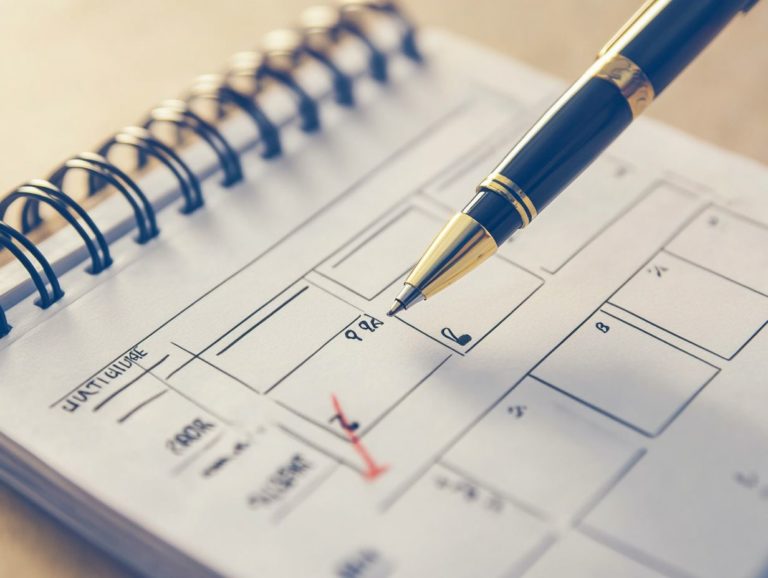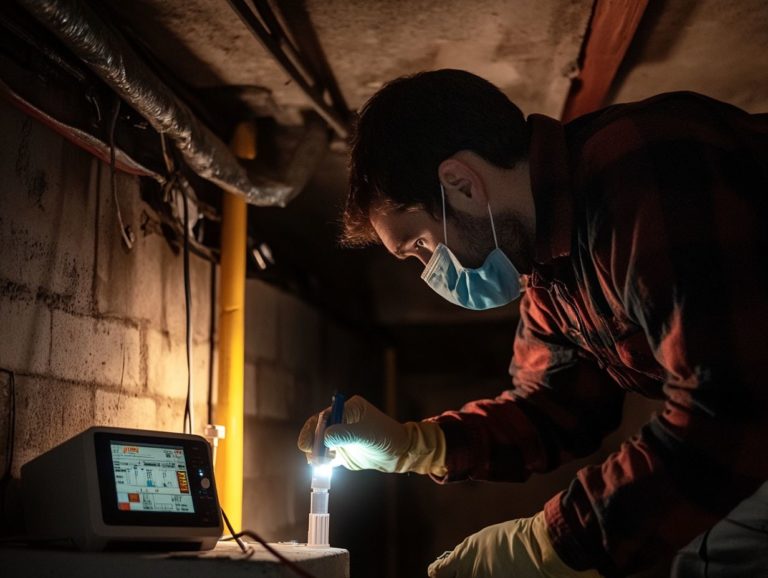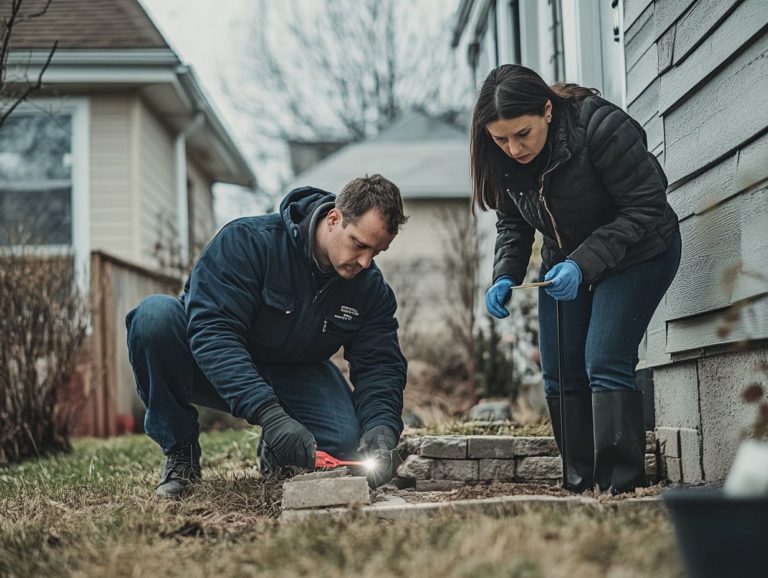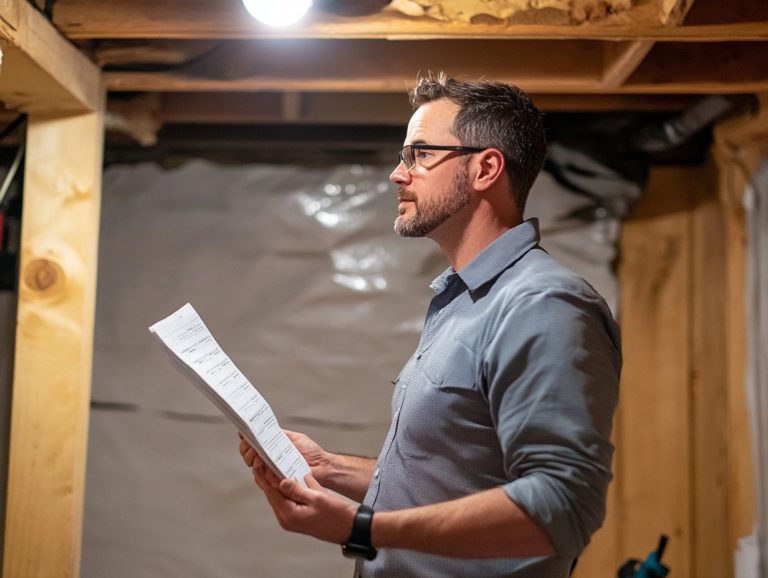Tips for a Successful Home Inspection Day
Preparing for a home inspection may seem daunting, but it doesn’t have to be.
Whether you’re a buyer eager to confirm that your potential new home is in excellent condition or a seller looking to showcase your property at its finest, understanding what to expect is essential.
From collecting the necessary documents to identifying common issues that may arise, this guide will lead you through each step of the process. Get ready to make your inspection day a success!
Contents
Key Takeaways:
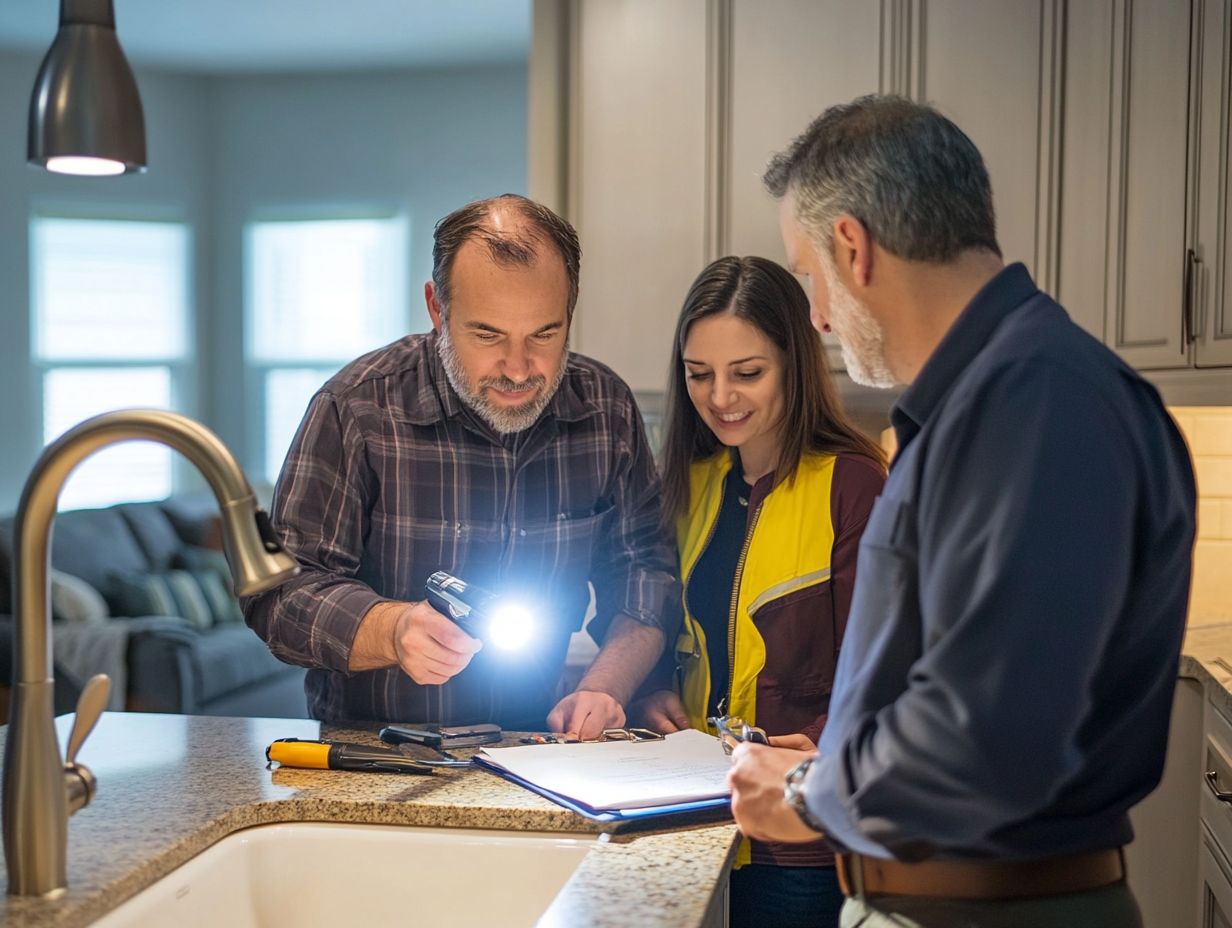
Prepare all necessary documents and clean and organize your home before the inspection to ensure a smooth process. Familiarize yourself with what to expect with a home inspection and the areas of your home that will be inspected to avoid any surprises. Communicate openly with the inspector and address any concerns or issues that may arise during the inspection to ensure a successful outcome.
Preparing for the Home Inspection
Preparing for a home inspection is an essential part of the home selling and buying journey, empowering you to navigate the intricate world of real estate with assurance. To gain deeper insights, consider exploring understanding the home inspection process.
This preparation goes beyond merely understanding the role of a licensed inspector. It involves collecting necessary documents, crafting a detailed checklist for the inspection, and proactively addressing potential issues regarding the condition and maintenance of the home. Additionally, collaborating with your agent by following tips for a successful home search can greatly enhance the process.
By dedicating time to this preparation, you can facilitate a more seamless inspection day. For guidance on what steps to take, check out what to do after a home inspection. This ultimately results in better inspection outcomes and fewer negotiation complications.
Gathering Necessary Documents
Gathering the necessary documents is crucial in preparing for a home inspection. It equips the inspector with essential information for a thorough assessment of the property.
These documents provide a clearer view of the home’s history and help identify significant defects that may not be immediately apparent. Compile a comprehensive list that includes:
- Previous inspection reports
- Maintenance records
- Warranties for appliances and systems
- Any records of repairs made to the home
By reviewing this information, the inspector can accurately pinpoint areas that may require special attention and estimate potential repair costs. This leads to a more thorough evaluation of the home’s condition.
Ultimately, having these documents at your fingertips not only streamlines the inspection process but also gives you whether you re a homebuyer or seller the confidence to make well-informed decisions moving forward.
Cleaning and Organizing the Home
Cleaning and organizing your home makes a big difference! It creates a welcoming atmosphere for the inspector and allows the true condition of your home to shine through.
By meticulously decluttering areas like the attic, basement, and garage, you make it easier to spot potential issues that might otherwise remain hidden. This proactive approach aids in a thorough visual inspection and boosts the inspector s confidence in their evaluation.
Addressing safety hazards, like ensuring smoke detectors are functioning properly, impacts the inspection’s findings. A home that demonstrates attention to these details reflects positively on its overall condition, enhancing the perception of both the property and its occupants.
What to Expect During the Inspection
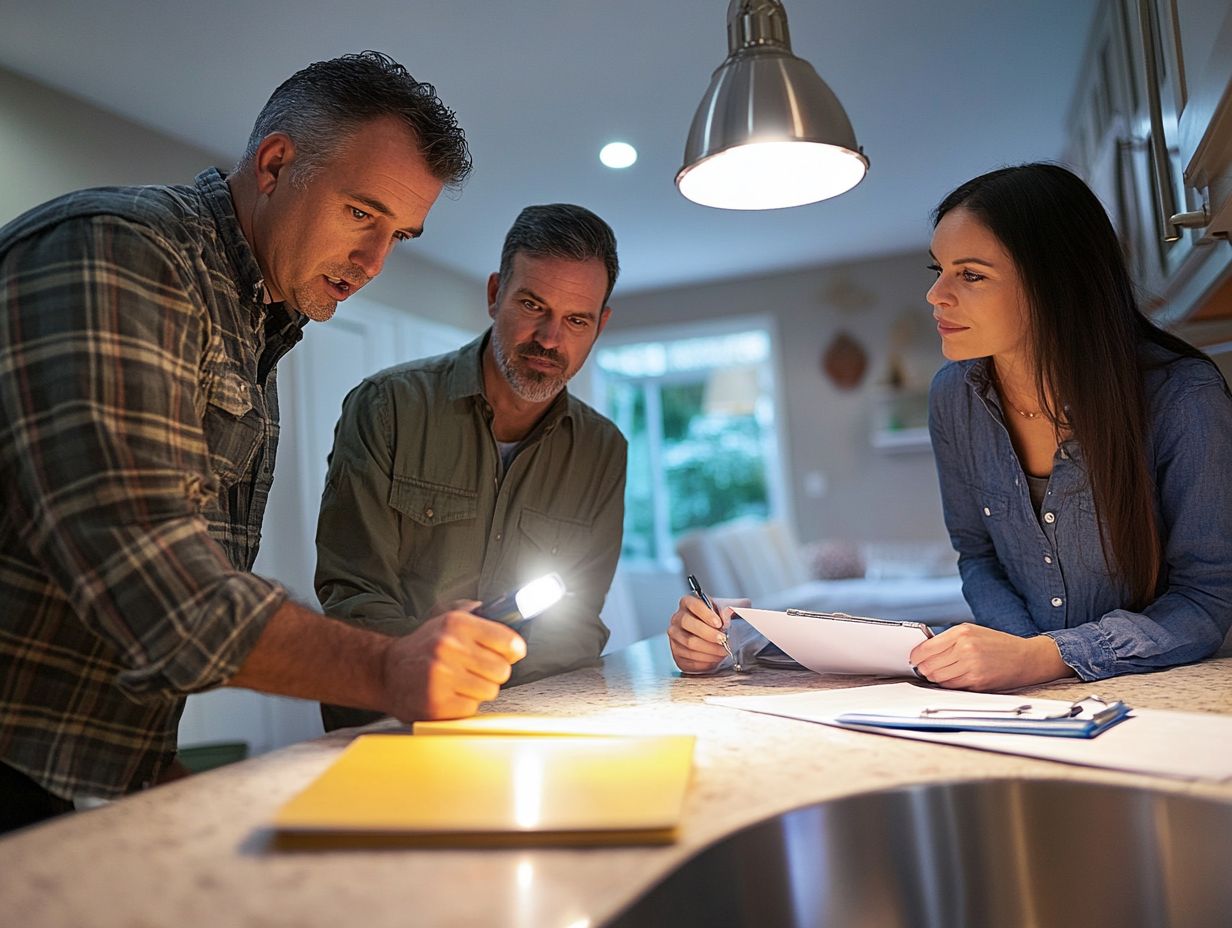
Understanding what to expect during a home inspection can ease any anxiety you may have, whether you re selling or buying a property.
Preparation is key in the real estate process, and knowing the ins and outs can make all the difference. Typically, a licensed inspector will conduct a comprehensive visual assessment of the property, evaluating the structural integrity alongside various systems and components.
This includes everything from the heating, ventilation, and air conditioning (HVAC) system and plumbing to the electrical systems and kitchen appliances. Some inspectors might offer specialty inspections tailored to specific concerns, underscoring the importance of being informed about what s to come.
Understanding the Home Inspection Process
An overview of the home inspection process reveals a methodical approach that inspectors use to ensure a comprehensive evaluation of the property.
This process typically begins with scheduling. As either the buyer or seller, you set a date and time that works for everyone involved.
On inspection day, the inspector will conduct a thorough examination of both the exterior and interior features of the home. They will check vital systems such as plumbing, electrical, and heating and cooling systems, so it’s important to know when to schedule your home inspection for the best results.
Once the physical inspection is complete, the findings are meticulously documented in a detailed report. This report highlights any issues, their severity, and possible remedies.
For you as a potential buyer, this document provides essential insights into the property’s condition, helping you make informed decisions. If you’re selling, it serves as a valuable tool to address concerns proactively, potentially enhancing your home’s appeal in the market.
Areas of the Home that Will be Inspected
During a home inspection, several critical areas are thoroughly evaluated to ensure safety and structural integrity.
The inspector will check the foundation for cracks or signs of settling that might hint at underlying issues. Your electrical system will undergo careful scrutiny for outdated wiring or overloaded circuits that could create fire hazards.
The plumbing system will be assessed for leaks, corrosion, and water pressure problems. This ensures that clean water flows freely while waste is efficiently removed.
The heating and cooling system will also be reviewed for proper operation and maintenance. A well-functioning unit contributes to your comfort and aids in energy savings.
Major appliances, like the refrigerator and washing machine, will be examined for functionality. Faulty appliances can lead to operational inefficiencies and safety concerns. Each of these essential components plays a crucial role in creating a safe and comfortable living environment for you.
Common Issues Found During Home Inspections
Issues discovered during home inspections can vary widely, from minor repairs that are easily managed to major defects that could seriously compromise safety and value.
Understanding these potential problems is crucial for both buyers and sellers in the real estate process, as they directly influence negotiations and repair costs.
Inspections often uncover issues like termite activity, water damage, and other safety hazards. These can lead to considerable financial consequences if left unaddressed.
Potential Problems and Red Flags
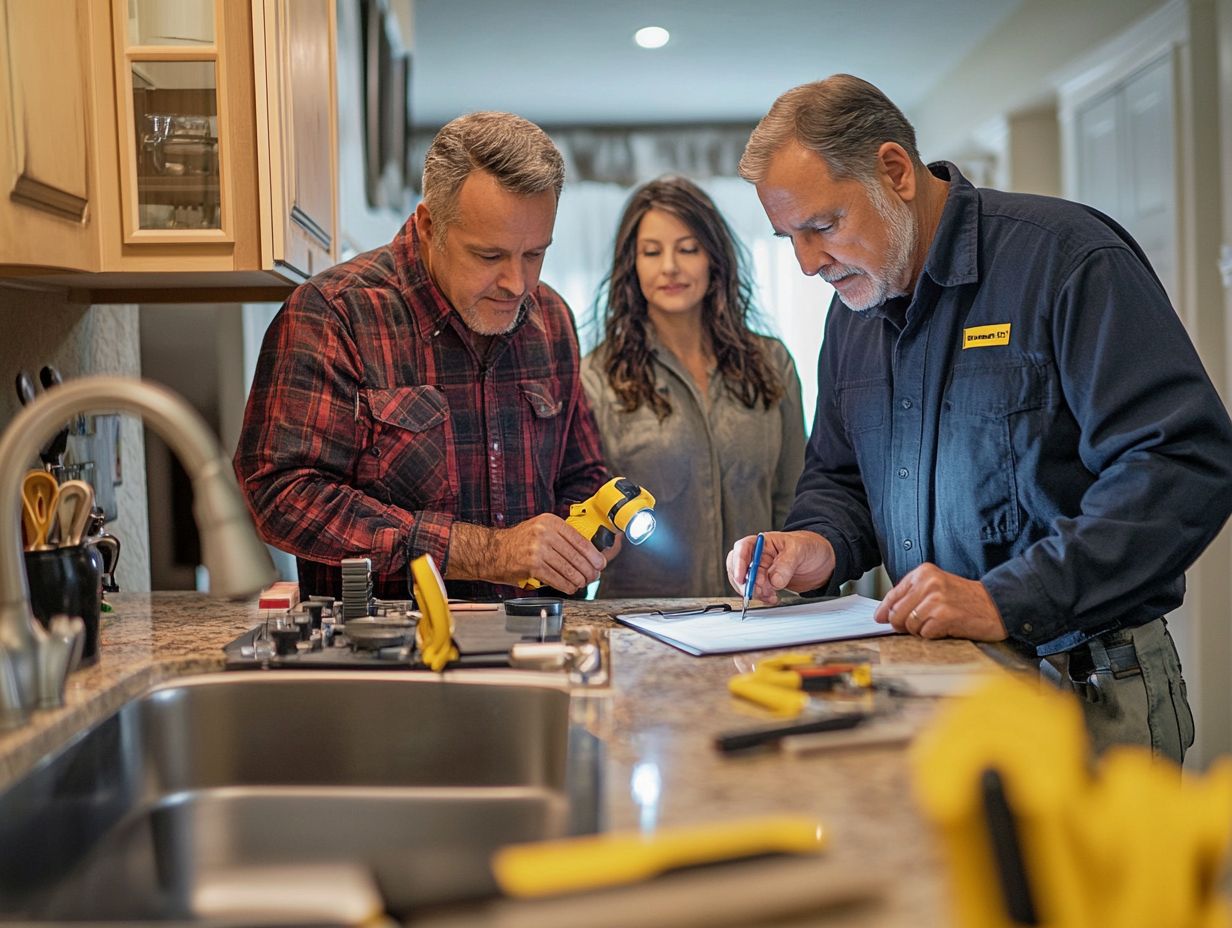
Identifying potential problems and red flags during a home inspection can save you from future financial burdens and safety hazards.
Inspectors meticulously examine a range of factors, looking for signs of water damage like stained ceilings and damp basements. These can signal serious plumbing issues lurking beneath the surface.
Structural concerns, such as cracks in the foundation or uneven flooring, jeopardize the integrity of the home and can lead to costly repairs in the future. Safety hazards, particularly those stemming from faulty electrical work, pose significant risks and warrant careful scrutiny.
Each of these findings can dramatically influence repair costs and negotiation strategies between you and the seller. This ultimately impacts the final sale price and terms.
Being vigilant during the inspection process empowers you to make informed decisions and protect your investment.
Tips for a Successful Home Inspection Day
A successful home inspection day is crucial for ensuring that the entire process unfolds seamlessly and that all parties involved are satisfied with the findings. Knowing what to expect during a home inspection can help in making the day go smoothly.
Effective communication with the home inspector allows you to gain a clearer understanding of the home’s condition and any potential issues that might arise.
It s essential for buyers like you to prioritize your interests. Be present during the inspection, ask insightful questions, and ensure you fully comprehend the inspection report and its implications for your investment.
Don’t hesitate to seek clarification on any points you’re uncertain about, as this can greatly enhance your understanding of the property.
Communication with the Inspector
Effective communication with the home inspector is key. It helps you understand the inspection findings and how they impact you as a buyer.
Engaging in open dialogue allows you to ask crucial questions about any concerns, like major deficiencies or maintenance issues noted during the assessment.
By inquiring about potential repair costs or the implications of certain findings, you gain invaluable context that can significantly influence your decision-making process. This productive conversation not only sheds light on the property’s current condition but also equips you with the essential information needed for future improvements.
Ultimately, fostering this exchange gives you the power to make informed choices and instills confidence in your investment.
Addressing Any Concerns or Issues
Addressing any concerns or issues that come up during a home inspection is essential for both buyers and sellers to navigate the real estate process with confidence.
As a buyer, you should meticulously review the inspection report to pinpoint key areas needing attention. This helps you discuss key issues with the sellers. It’s crucial to grasp the significance of each issue; not only does it impact your current transaction, but it also has lasting implications for future ownership costs and property value.
You have the option to negotiate repairs or request credits, providing you with financial relief for future home maintenance. Understanding potential repair costs gives you the power to make strategic decisions, ensuring you feel confident and prepared as you progress through the purchasing journey.
Following Up After the Inspection
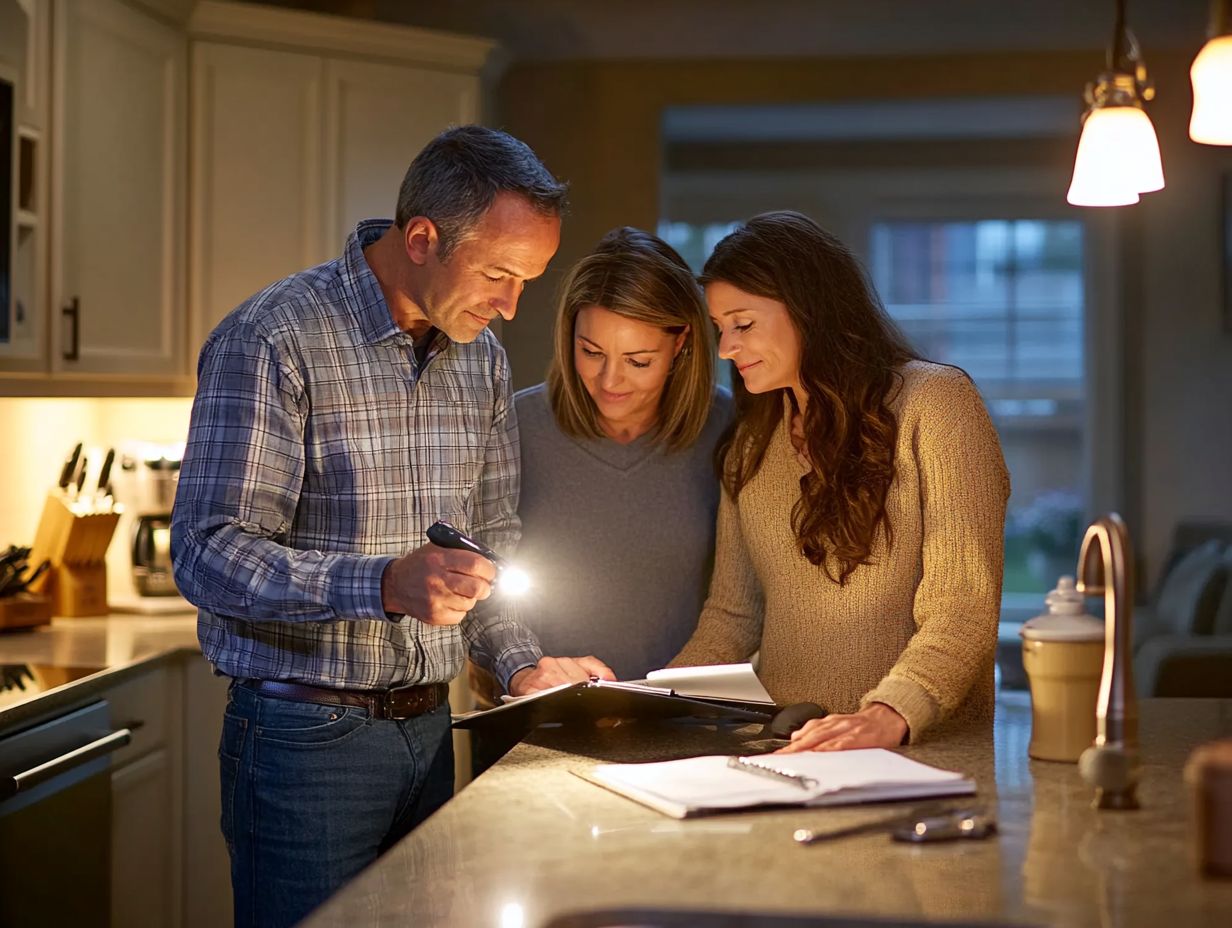
Following up after the inspection is a vital step in the home buying and selling process, offering you clarity on the property’s condition and any necessary actions to consider.
The inspection report acts as a key document, detailing all findings and drawing attention to both significant and minor issues that require attention.
This step is essential for ensuring that the transaction moves forward seamlessly, with all parties fully aware of any repair costs involved.
Reviewing the Inspection Report
Reviewing the inspection report is an essential step for both buyers and sellers. This report encapsulates all findings and highlights any major defects or concerns that could impact your decision.
Interpreting this report effectively involves more than just acknowledging the issues; it requires a deeper understanding of how these findings could affect the property’s value and livability. For example, if there are significant issues like structural damage or outdated electrical systems, you’re not only facing immediate safety risks but also future repair costs that need to be factored into your offers.
As a seller, you can leverage this insight to tackle critical issues before listing your property, thereby strengthening your position in negotiations. By evaluating the repair costs linked to identified problems, both you and the buyer can make well-informed decisions that shape negotiation strategies and help plan for future maintenance, ensuring the property remains a sound investment.
Next Steps for Addressing Any Issues Found
Taking the right next steps to address any issues uncovered during the inspection is crucial for ensuring a successful real estate transaction.
Act quickly to negotiate repairs! This can foster a better understanding and resolution of any concerns that have been highlighted.
Seek multiple estimates for repairs. This will help you understand the costs involved.
For particularly complex issues, it may be wise to engage in detailed checks for specific problems, such as pest infestations or structural integrity.
By addressing these issues promptly, you can maintain the property’s condition, protect your investment, and ensure that your interests are well-supported throughout the entire process.
Frequently Asked Questions
What are some tips for a successful home inspection day?
1. Prepare your home by decluttering and cleaning. This step ensures a thorough inspection.
2. Confirm that services like water and electricity are working. This allows the inspector to conduct necessary tests.
3. Be there during the inspection! This is your chance to ask questions and voice any concerns.
4. Take notes and photos. These will be helpful for your reference later.
5. Don’t hesitate to seek the inspector’s advice. They can offer valuable recommendations for maintenance and repairs.
6. Be open about any known issues. Sharing past repairs will help the inspector assess your home better.

